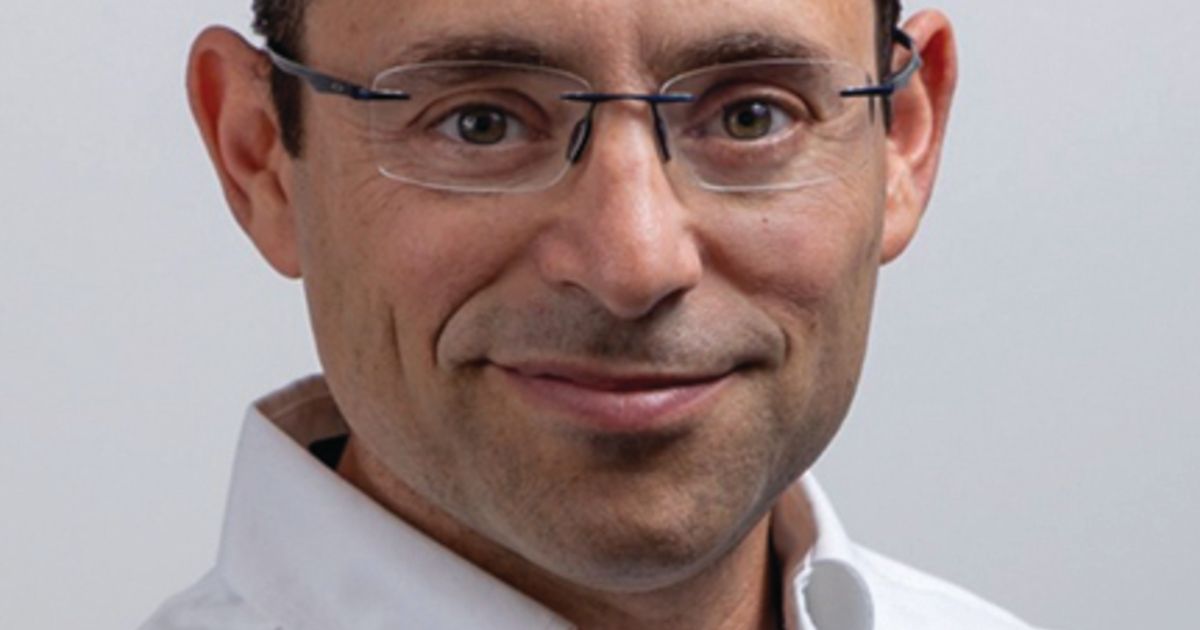CHEN ZUR
EY Americas Digital,
Emerging Technologies & Blockchain Leader
The always-compelling story of blockchain continues to be written in real time. Through every up and down in the crypto market, however, supporters’ belief in the emerging technology as a powerful instrument of social good and financial-system disruption never wavers. Crain’s Content Studio recently convened a breakfast panel of crypto industry leaders to discuss the next chapter of this potentially ground-breaking technology, focusing notably on the role New York might play in that future. One of the panel participants, Chen Zur, EY Americas Digital, Emerging Technologies & Blockchain Leader, sat down with us separately to add context and color to the thoughts that he offered at the gathering.
CRAIN’S: What do New York institutions stand to gain from the crypto sector’s growth in the region?
CHEN ZUR: Cryptocurrency is only the first step for blockchain technology; in its core, blockchain allows us to manage our digital identity, our ability to own digital assets and exchange value between us. Blockchain, together with advancements in technologies like AR and VR, is an integral part of Web3—the next evolutionary step of the internet (the metaverse). Web3 and blockchain are an inevitable future, and the changes they bring present opportunities for New York. Once businesses bring their brands to Web3, they will be able to accept payment through new methods, create new ways to maintain customer loyalty, and monetize new experiences.
CRAIN’S: From a consumer’s perspective, how are blockchain-based solutions poised to change financial services?
ZUR: Today’s monetary system uses intermediaries, like banks and payment apps, to exchange value—debiting one person’s account while crediting another’s. Similarly, our individual digital identities are managed through intermediaries, like social networks. With Web3, the internet itself, via blockchain ledgers and protocols, will both ensure the exchange of value and verify digital identities. Consumers will own their assets and be able to exchange value without having to depend on an intermediary. And everything will happen immediately, around-the-clock and around the world. These capabilities have ramifications for activities such as interest-billing deposits, currency exchange and collateralized lending. Consider the painful 60-day mortgage process. Ten years from now, it will be closer to seamless.
“Web3 and blockchain are inevitable, and the changes they bring will present opportunities for New York.”
CRAIN’S: What does the regulatory climate bode for the future of crypto in New York? Will regulation push such businesses away or draw them in?
ZUR: The New York Department of Financial Services is one of the most advanced regulators of Web3 technology in the world. It takes a long time to understand this technology and regulate it correctly. Because of DFS’s leadership, New York is positioned extremely well to quickly adapt to this change. Crypto is happening with or without regulation—it’s unstoppable. If you make it hard to use or ban it completely, innovation will simply happen somewhere else. Besides, proper regulation can create opportunity. For example, it makes it easier to enforce tax rules, so once all transactions are documented on the blockchain, the tax base will increase. Too often regulatory actions come from a place of fear and risk avoidance. Properly motivated regulation, on the other hand, attracts businesses, especially those that appreciate innovation.
CRAIN’S: How can New York attract crypto companies? What has to happen for it to become a global crypto hub?
ZUR: Regulatory clarity is key, but so is creating an environment that makes it easier for businesses to innovate and adapt to change. We need to regulate decentralized finance, and we need to regulate stablecoin that’s pegged to the U.S. dollar. Innovative Know Your Client and Anti-Money Laundering regulations are the first steps on a path to a pseudo-anonymous, exchange-of-value future in which everyone keeps their privacy, but also pays taxes. New York is already establishing favorable and reasonable regulation—we just need more of it. This increased clarity will attract the businesses that will make New York a Web3 hub.
CRAIN’S: How does the decentralization of crypto make it a social and economic equalizer?
ZUR: Decentralization eliminates intermediaries. Today there are a lot of people creating content— photos, videos—then uploading it all to a single location from where it can be mass-consumed. The owner of that location, the controller of the platform, is the one in position to monetize that content. In Web3 you own your assets and identity, and value exchange is peer to peer. That levels the playing field. Decentralization is always an equalizer. The same way the invention of the printing press made information more available (decentralized), and the creation of the middle class soon followed, the invention of the internet (Web 1.0 and 2.0) spread information even more widely and made it easier for nations like India and those in Africa to advance. Similarly, blockchain and Web3 will make “value exchange” a social and economic equalizer.
To see the entire PDF, click HERE.
Staying current is easy with Crain's news delivered straight to your inbox, free of charge. Click below to see everything we have to offer.
Don't miss the chance to get the biggest news first! Stay connected to New York business news in print and online
Our Mission
Crain’s New York Business is the trusted voice of the New York business community—connecting businesses across the five boroughs by providing analysis and opinion on how to navigate New York’s complex business and political landscape.
685 Third Avenue
New York, NY 10017
(212) 210-0100
Contact us
FAQ
Report a problem
Staff directory
Crain jobs
Author
Administraroot

